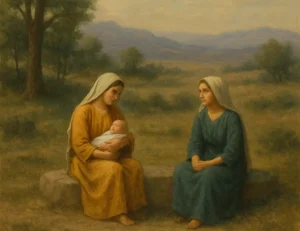“How can Jacob hate his own wife, Leah? Jacob is the third Patriarch of Israel, the father of every Jew living since… The Alter Rebbe explains…[that] While Rachel represents the conscious self,…Leah represents the unconscious self…
We each have our ‘Rachel’ and our ‘Leah,’ within ourselves, within… our entire lives—and, of course, in our experience of God.
Rachel symbolizes those dimensions of yourself that you can make ‘sense of;’ those aspects of [others] that you comprehend, grasp, appreciate, and can somewhat control.. and are comfortable with… Leah represents the components of [others] that challenge you, …that force you to reevaluate everything about yourself …the dimensions of your identity that you have long ago repressed (or suppressed) and they trigger deep fears. …the aspects of yourself that you cannot make sense of.
Rachel is naturally loveable; Leah is naturally hated. Why?
People hate what they don’t understand. … When I am faced with a reality that defies my comfort zone, it triggers deep unrest in me, it scares and overwhelms me…. makes me feel vulnerable, it forces me to give up control….The resistance, in the form of hate, allows me to ignore truth.
We love Rachel because she fits into our comfort zones. She is our projected self, she embodies the light which allows us to observe and understand. Leah… embodies an infinite depth that tires us out—it perplexes, confuses, and overwhelms us. Jacob chooses to marry Rachel. But in the process, he marries Leah. Each of us marries two people: Leah and Rachel. Our conscious self marries our conscious spouse; our unconscious self marries our unconscious spouse. One spouse we love; the other challenges us deeply.
Jacob understood this. Slowly, he learned to appreciate, respect, and love Leah. We too must discover this ability within ourselves. Those aspects in your life that you run away from most—may contain the deepest ‘tikunim’ (healing powers) for you; those aspects in your spouse that irk you most, may hold the secret to your recovery; those aspects in your relationships that challenge some deep emotions in you may contain the key to ultimate self-discovery.
What is more, your path to Rachel always goes through Leah. You can never love your Rachel if you do not make peace with your Leah.”

